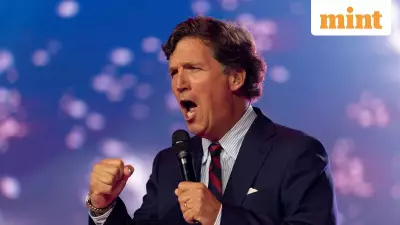
The COP30 climate summit in Brazil descended into chaos on Wednesday as dozens of Indigenous protesters stormed the venue in Belém, triggering violent clashes with security personnel and raising global concerns about escalating tensions over Amazon protection.
Protesters Breach Security, Demand Land Rights
Dozens of Indigenous activists forcefully entered the COP30 venue while chanting "Our land is not for sale" in a dramatic protest against what they describe as the systematic destruction of their communities. Security guards attempted to block their entry using tables as makeshift barricades, but the determined protesters pushed through, leading to physical confrontations.
During the intense scuffles, several security guards sustained injuries according to official reports. Authorities later confirmed they had confiscated heavy sticks from the crowd, indicating the protest had turned violent. The Indigenous groups directly accused agribusiness corporations, mining companies, and oil firms of destroying their ancestral lands and livelihoods.
UN Response and Summit Continuation
The United Nations quickly addressed the incident, confirming that while there were minor injuries and some property damage, the important climate summit would resume as scheduled on Wednesday. UN officials emphasized their commitment to ensuring the conference continues despite the disruptions.
Meanwhile, Brazilian President Lula made a significant statement amid the turmoil, asserting that Indigenous voices remain crucial in shaping global climate policy. His comments came at a time when concerns about Amazon deforestation have reached critical levels, putting additional pressure on the international community to address environmental protection and Indigenous rights simultaneously.
Broader Implications for Climate Policy
The dramatic protest highlights the growing frustration among Indigenous communities who feel their voices are being marginalized in critical climate discussions. As guardians of the Amazon rainforest, these communities have repeatedly emphasized their vital role in preserving one of the world's most important carbon sinks.
The incident at COP30 underscores the deepening conflict between economic development interests and environmental conservation efforts in Brazil. With world leaders watching the unfolding events, the protest has successfully drawn international attention to the urgent need for including Indigenous perspectives in climate solutions.
As the summit prepares to continue, all eyes remain on how negotiators will address the fundamental issues raised by the protesters - particularly regarding land rights, forest protection, and corporate accountability in environmentally sensitive regions.





